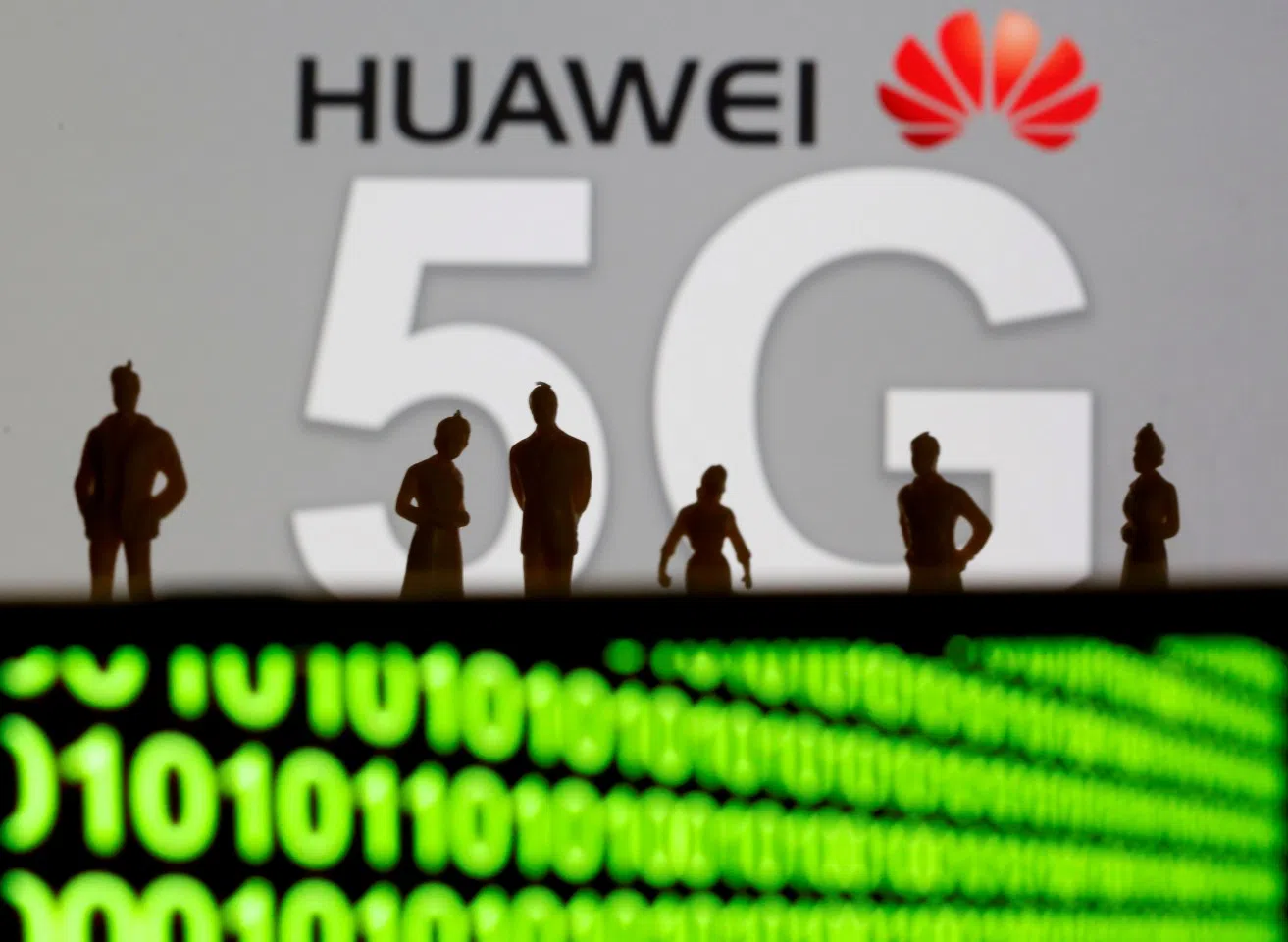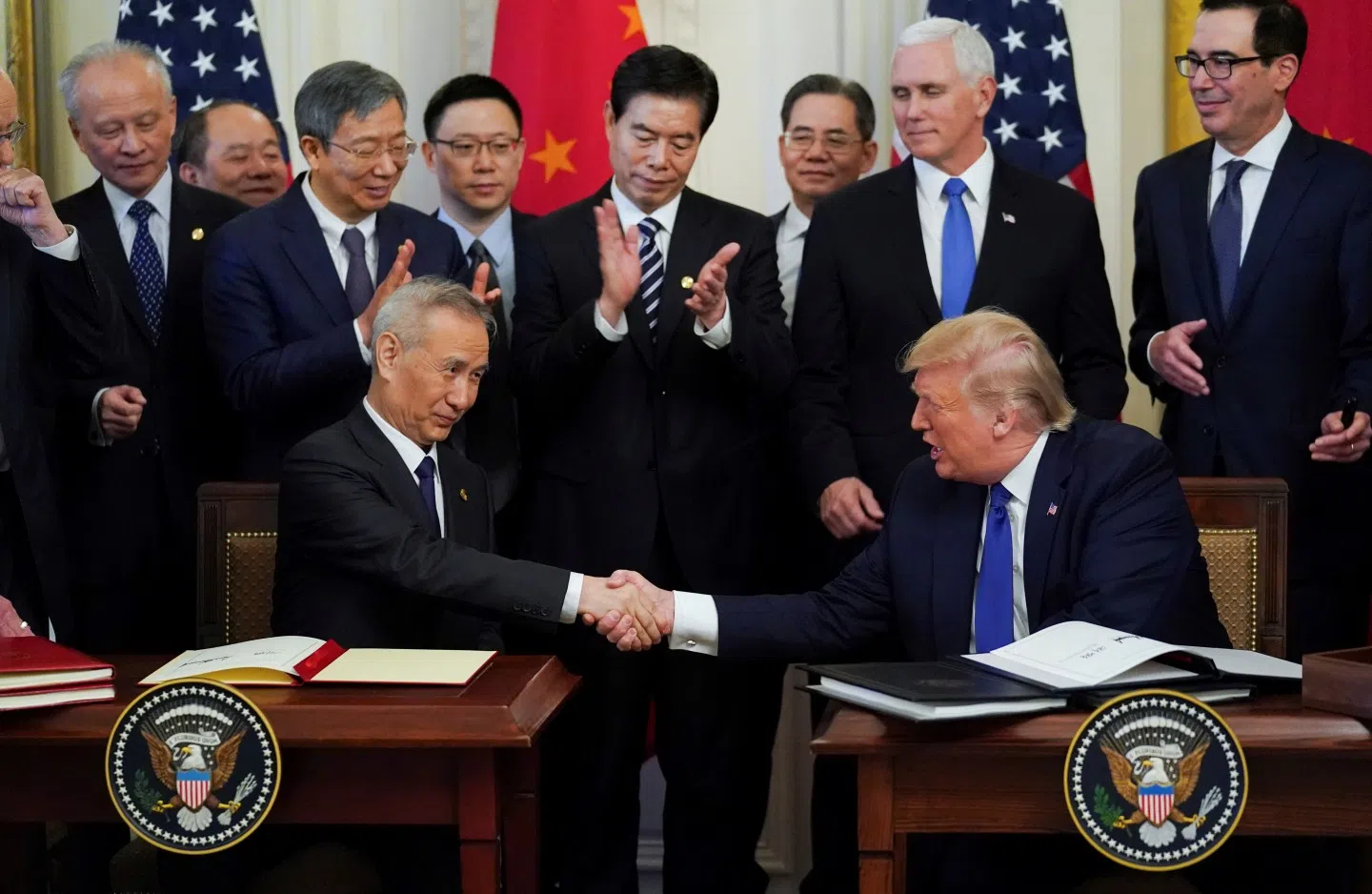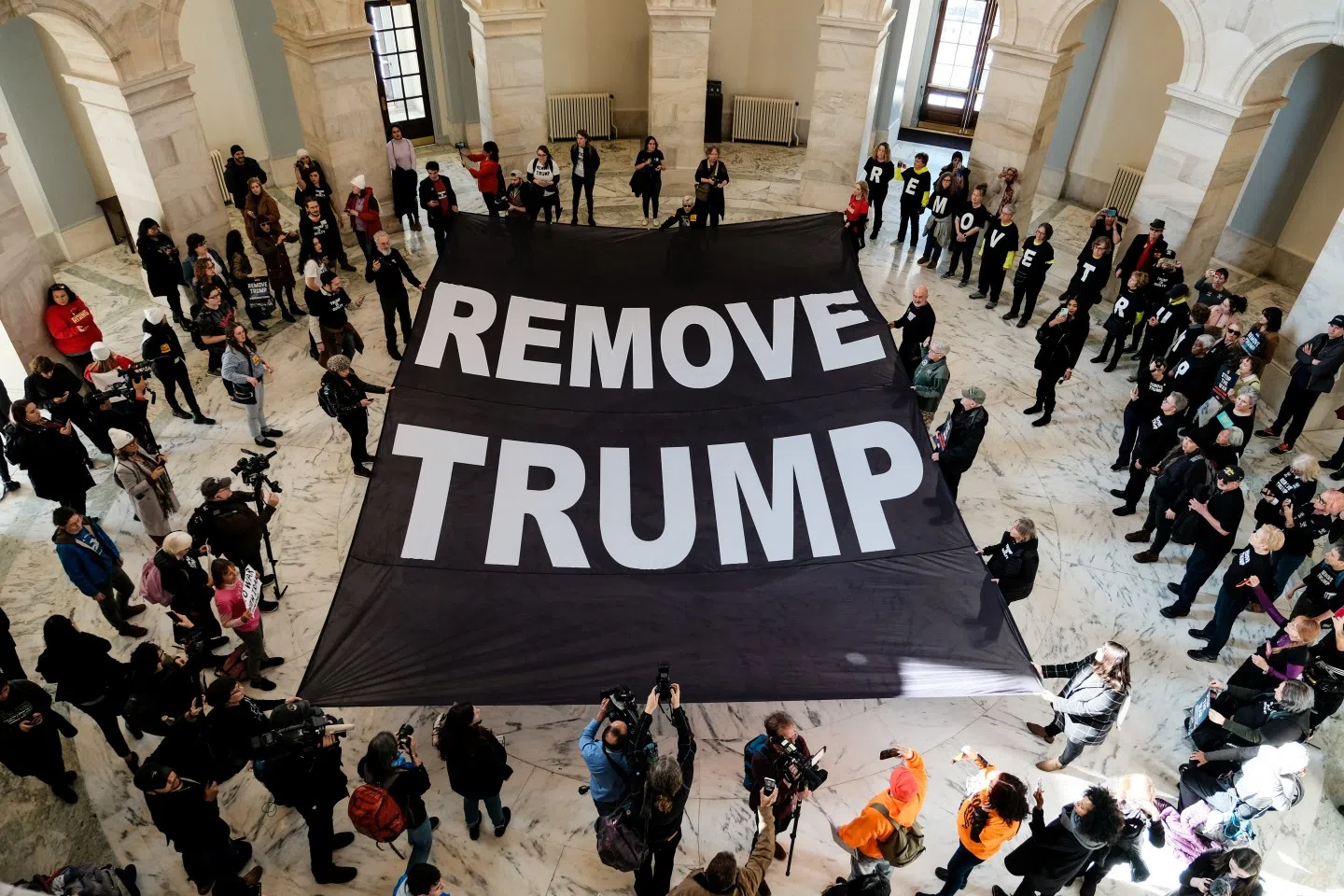China held its own in phase one trade deal?
Chinese observer Zhang Jingwei says China held its own in sealing phase one of the US-China trade deal. But this is just a prelude to the second act as the US heads further into its election year.

A piece of good news has finally arrived as we usher in a new decade.
On 15 January 2020 (EST), China and the US signed the Economic and Trade Agreement between the United States of America and the People's Republic of China at Washington. This agreement is also widely known to observers and commentators as the "phase one" trade agreement between the two powers.
The signing of the agreement signals a temporary truce in the 18-month long China-US trade war. The leaders from both countries have each given positive responses in light of this event. In a message Chinese President Xi Jinping relayed to President Trump through Vice Premier Liu He, President Xi expressed that the agreement would be "good for China, the US and the whole world". On his part, President Trump said, "Together we are righting the wrongs of the past and delivering a future of economic justice and security for American workers, farmers and families." The "wrongs" that Trump spoke about offer much food for thought.
China met with an economic downturn as a result of the trade war, while American consumers were not spared from the pressure as well. The trade war between two major powers of the world has also brought much anxiety and uncertainty to the global market, lowering the forecast for global economic growth. Various major organisations have reduced their economic growth projections, forcing the US Federal Reserve System (Fed) to take prompt action instead of being just a cautious observer of the situation. This is why the Fed, under the pressure from the White House, cut interest rates in the second half of 2019.
Reverberations of the trade war for the US
The US's trade war on China has become a "double-edged sword" for the US. The US's tech war on China, for instance, has failed to bring about its desired effects. Trump's executive order effectively preventing American enterprises and global multinational corporations from supplying hardware and software services to Huawei may have placed Huawei in a major crisis, but Huawei was well-prepared for the ordeal. In fact, the attempt to attack Huawei by blocking its supply chain is an untimely, anti-globalisation move. Without a major customer like Huawei, many US tech companies that were once considered the biggest winners of globalisation, have experienced huge losses.
America's boycott of Huawei's 5G technology and devices did not achieve expected results as well. The US's core ally and member of the Five Eyes (an intelligence alliance comprising the US, UK, Canada, Australia and New Zealand), the UK did not completely ban Huawei's 5G technology and devices according to the US's wishes. And other European countries are in fact more upset with the US's coercion and tough stance. Huawei has already received over 60 orders as of the end of 2019.

Additionally, the US suppression of Huawei has brought forward China's 5G era, not only granting Chinese consumers early access to 5G devices, but also boosting the productivity of China's AI industry. The dawn of 5G technology does not mark the end of digital technology; it marks the beginning of a more powerful one. Just as the US was closely watching Huawei, Japan and other countries are already looking to the research and development of 6G technology and beyond.
China holding its own
China's economy has suffered a downturn since the China-US trade war, but it has also demonstrated much resilience. The trade and tech wars triggered China's crisis awareness, fuelled innovation in Chinese enterprises, and renewed the world's understanding of the two powers. In the past, America was known as the single superpower, alongside various major powers like China, Russia, European Union, and Japan. Currently, China and America make up the world's "only two" superpowers.
The signing of the agreement is not a simple reconciliation, neither is it a kind gesture from the US - it is the result of the battle between China and the US, or an "arm wrestle" between two superpowers, if you like. China has been agile and sure-footed in countering each of the US's attacks, especially during the more than ten rounds of high-level trade talks. These situations reveal a country's power. Weak countries do not have diplomatic clout and are in no position to negotiate terms, not to mention signing a trade agreement that is fair and beneficial to both parties.

The phase one trade agreement includes the following main points:
first, both parties will "strengthen bilateral cooperation on the protection of intellectual property rights and promote pragmatic cooperation in this area";
second, "China shall ensure that purchases and imports into China from the United States of the manufactured goods, agricultural goods, energy products, and services... exceed the corresponding 2017 baseline amount by no less than $200 billion";
third, both parties will "work constructively to provide fair, effective, and non-discriminatory market access for each other's services and services suppliers";
and fourth, each party will "respect the other Party's autonomy in monetary policy, in accordance with its domestic law".
The aforementioned terms are a win-win for both China and the US. The policies once considered harsh to China - protection of intellectual property rights, opening up of the financial sector, balance of trade, and exchange rate issues - are in fact beneficial in the long term. As for tariffs, the core issue of the China-US trade war, Vice Premier Liu He emphasised that the US has agreed to roll back a portion of the tariffs on Chinese products, and will move from increasing tariffs to lowering them. But US Secretary of the Treasury Steven Mnuchin pointed out that the US will maintain tariffs on Chinese products until a phase two deal is reached.
Not the end of the story
Clearly, continued discussions and negotiations are needed to achieve a comprehensive consensus between China and the US. Furthermore, as the US regards China as an opponent, there is a growing sense of anxiety towards China. Thus, structural contradictions between China and the US are difficult to resolve and may continue to exist. Regardless, the signing of the agreement is aligned with the fundamental interests of both powers, and a demonstration of mutual respect for their dignities, sovereignties, and core interests. Of course, this agreement also helps to address global concerns about the trade war.

The signing of a phase one trade agreement is also an opportunistic move by the Trump administration. Facing impeachment, Trump sees it as a chance to add a feather in his cap. With a renewed conflict between the US and Iran (the House even passed a resolution to restrain Trump's war powers against Iran), and the possibility of entering a new Gulf War if the US is not careful, Trump has his hands full. He has to fully commit himself to handling domestic affairs, to survive impeachment and prepare for the 2020 United States presidential election.
In every election, China is targeted by both the US's Republican and Democratic parties. Following the signing of a phase one trade deal, the Democratic Party will also slam Trump for giving in to China. However, a verbal war on China is clearly much less taxing than a trade and tech war.


![[Big read] When the Arctic opens, what happens to Singapore?](https://cassette.sphdigital.com.sg/image/thinkchina/da65edebca34645c711c55e83e9877109b3c53847ebb1305573974651df1d13a)


